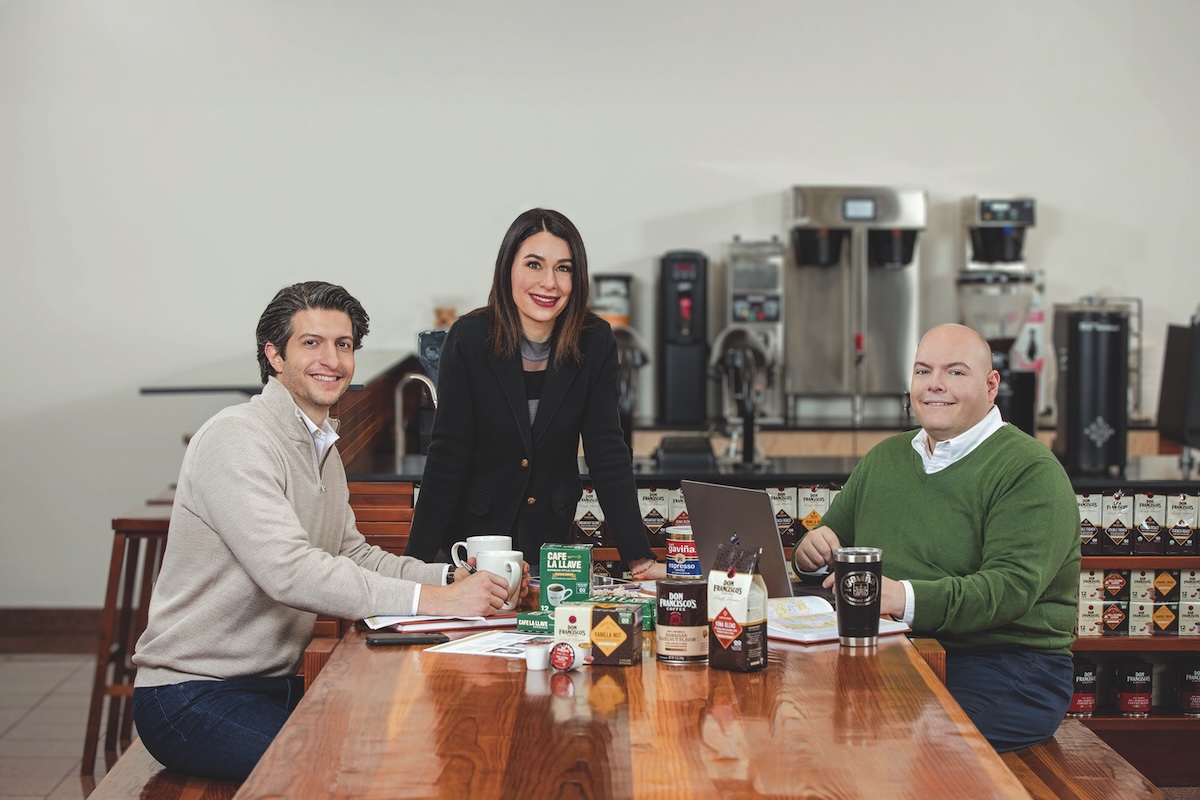Gaviña Coffee Co. in Vernon has passed into its fourth generation of family ownership.
The transition comes in the wake of co-founder and then-president Pedro Gaviña’s death in September. The company’s presidency is now split among three cousins: Lisette Gaviña Lopez, Michael Gaviña and Frank Gaviña. Each is a managing director of sales and marketing, accounting and financing, and operations, respectively.
Gaviña Lopez, who also serves as board chair and chief executive, said she is among another sibling and eight total cousins, comprising the fourth generation of Gaviñas steering the company forward.
“We all grew up working in the business,” she said. “We’ve all worked in the business in some capacity. Some of us joined full-time after college.”
Pedro Gaviña co-founded the company in 1967 with his own parents and other siblings, after settling in Los Angeles as immigrants fleeing the new Cuban regime under Fidel Castro. The family’s history as coffee farmers dates back to the 1800s.
“His whole life had been coffee. He was born on the family coffee farm,” Gaviña Lopez said. “The company started more as a hobby for my grandfathers. My family were coffee growers for 100 years before the revolution. He just saw this opportunity for all of the Cubans coming to the United States. That’s how we started, catering more to the Cuban community.”
Pedro Gaviña’s death was preceded by that of brother Francisco “Paco” Gaviña, the engineer who designed the company’s roasting and packing facility, in August.
Gaviña Coffee – whose brands include Don Francisco’s Coffee, Café La Llave Espresso and Gaviña Gourmet Coffee – has contended with recent economic headwinds.
The pandemic’s supply chain disruptions and changing workforce regulations were one thing. More recently, tariffs on South American countries have affected supply price – virtually all coffee in the U.S. has to be imported. And the nature of Gaviña Coffee’s business model, which imports all green coffee through the Port of Los Angeles and Port of Long Beach and roasts it here, means they don’t have the option of importing pre-roasted beans from elsewhere.
“We have the high cost of the commodity – coffee’s gotten a lot more expensive over the last year – and now we have the tariff impact on top of it,” Gaviña Lopez noted. “Most of the coffee-producing countries have a 10% tariff, but then the 50% tariff on Brazil was implemented in August. About a third of U.S. coffee imports are from Brazil.”

